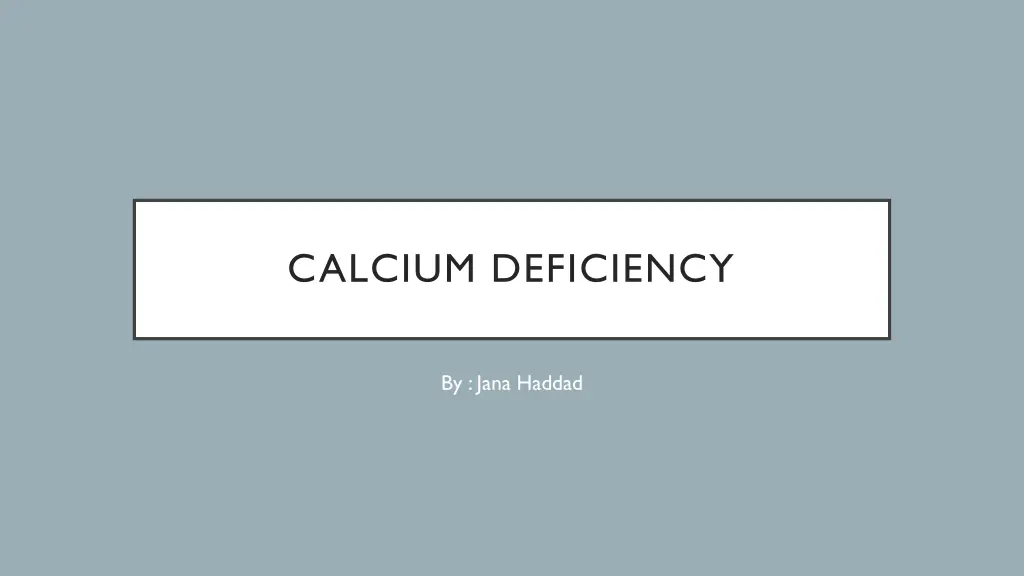
Understanding Calcium Deficiency Symptoms and Treatment
Learn about calcium deficiency symptoms, causes, and treatment options. Discover the signs of low calcium levels, high-calcium foods, and how to manage hypocalcemia effectively.
Download Presentation

Please find below an Image/Link to download the presentation.
The content on the website is provided AS IS for your information and personal use only. It may not be sold, licensed, or shared on other websites without obtaining consent from the author. If you encounter any issues during the download, it is possible that the publisher has removed the file from their server.
You are allowed to download the files provided on this website for personal or commercial use, subject to the condition that they are used lawfully. All files are the property of their respective owners.
The content on the website is provided AS IS for your information and personal use only. It may not be sold, licensed, or shared on other websites without obtaining consent from the author.
E N D
Presentation Transcript
CALCIUM DEFICIENCY By : Jana Haddad
WHAT IS IRON CALCIUM DEFICIENCY A disorder known as hypocalcemia, also known as calcium deficiency disease, occurs when the blood's calcium levels are low. Long-term calcium deficiency can result in blindness, changes in the brain, dental and cognitive issues, fractures, which weakens the bones, and bone loss.
8 SIGNS OF CALCIUM DEFICIENCY weakness fatigue muscle cramps or spasms numbness or tingling, particularly in the fingertips and jawline muscle spasms mainly in the hands weak or brittle fingernails fainting difficulty swallowing
WHAT HAPPENS WHEN CALCIUM IS LOW cramps and painful muscle pain. jerking of the muscles. tingling or numbness in the hands and feet.
HOW DO U TREAT LOW CALCIUM The primary treatment for people with acute symptomatic hypocalcemia is intravenous (IV) calcium gluconate, whereas daily calcium and vitamin D supplements are used to treat chronic hypocalcemia.
WHAT ARE FOODS THAT HAVE HIGH CALSIUM Dairy (cow, goat, sheep) and fortified plant-based milks (almond, soy, rice) Cheese. Yogurt. Calcium-fortified orange juice. Winter squash. Edamame (young green soybeans); Tofu, made with calcium sulfate. Canned sardines, salmon (with bones)
